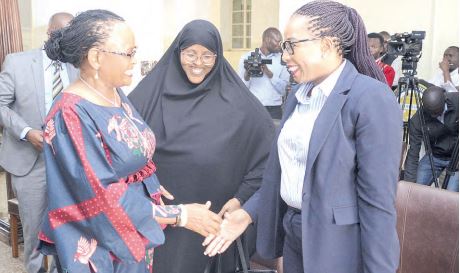

The appointment of a selection panel to recruit commissioners for the Independent Electoral and Boundaries Commission marks a pivotal moment in Kenya’s democratic journey.
As enshrined in the 2010 Constitution, the IEBC is the custodian of electoral integrity, mandated to conduct elections, oversee referenda, register voters, regulate political parties and delineate electoral boundaries.
Beyond these technical functions, the agency is fundamental to Kenya’s democratic architecture, determining the credibility of electoral processes and, ultimately, the quality of leadership that governs the nation.
At its core, the IEBC is more than just an election management body; it is the nerve centre of Kenya’s democracy.
A credible electoral commission ensures free, fair and transparent elections, thereby legitimising elected leaders and fostering public trust in governance.
The absence of commissioners, as currently witnessed, cripples its ability to conduct by-elections, undertake boundary reviews and manage essential electoral operations such as voter registration, training and education.
This paralysis has a direct impact on the democratic rights of citizens, leaving constituencies like Ugunja, Magarini and Banisa without representation and weakening the nation’s electoral preparedness.
Given that Kenya has a history of contentious elections, the IEBC’s role cannot be overstated—it is the referee in a high-stakes game where the nation’s stability hangs in the balance.
As the selection panel embarks on the crucial task of appointing new commissioners, the focus must go beyond finding individuals of unquestionable integrity.
While personal probity is indispensable, Kenya needs commissioners who embody a blend of expertise, independence and a deep appreciation for democratic principles. The ideal candidates must be individuals with extensive knowledge of electoral laws, political systems and governance structures, coupled with a firm grasp of emerging trends in election management.
In an era where technology is redefining electoral processes globally, the new IEBC must be well versed in digital election security, data management, and innovative voter engagement strategies.
Beyond technical competencies, the commissioners must possess a resolute commitment to fairness and neutrality. The IEBC has previously been accused of being susceptible to political interference—a weakness that has fuelled electoral disputes and public mistrust.
Therefore, the panel must look for individuals with a demonstrated history of independence, resilience under pressure, and the moral fortitude to resist undue influence.
The IEBC should not be a mere tool in the hands of the political class; it must serve the Kenyan people with unwavering dedication to the principles of democracy. Equally important is the cultivation of a robust institutional culture within the IEBC.
The commission should strive to be at the cutting edge of election management globally, benchmarking against best practices from leading democracies. This requires fostering a work ethic that prioritizes transparency, accountability and efficiency.
A strong internal value system will ensure that the IEBC is not just legally independent but functionally and operationally autonomous.
Looking ahead, the reconstitution of the IEBC presents an opportunity to strengthen Kenya’s electoral democracy. While past challenges have cast shadows over its credibility, a well-selected team of commissioners, guided by a progressive ethos and armed with the right tools, can steer the commission towards excellence.
This moment calls for cautious optimism—the selection panel has the responsibility to rise above partisan interests and choose individuals who will restore confidence in Kenya’s electoral system.
Ultimately, the IEBC is only as strong as its leadership. If the new commissioners prioritise the public interest over political expediency, Kenya will be better positioned to conduct credible elections, consolidate democratic gains and enhance governance.
The journey to a robust electoral system begins now, and the choices made at this stage will shape the future of the country’s democracy.
The success of Kenya’s next electoral cycle will be largely determined by the calibre of the commissioners selected through this process.
The selection panel has a profound responsibility to ensure that only individuals of unquestionable integrity and technical competence are appointed.
Beyond recruitment, structural reforms must be instituted to insulate the electoral commission from external interference and internal inefficiecies. Moreover, political actors must resist the temptation to undermine the commission’s independence.
The credibility of the electoral process is fundamental to democratic stability, and any perception of bias could erode public trust, leading to contested outcomes and potential instability.
The path ahead is fraught with challenges, but it is also an opportunity to reimagine the IEBC as a truly independent, professional, and transparent institution. If Kenya is to break the cycle of postelection disputes and build a resilient democracy, this moment must not be squandered.
The selection panel must rise to the occasion, ensuring that electoral future is entrusted to competent hands. A strong electoral agency is not just about managing elections—it is about safeguarding the nation’s democratic integrity.











